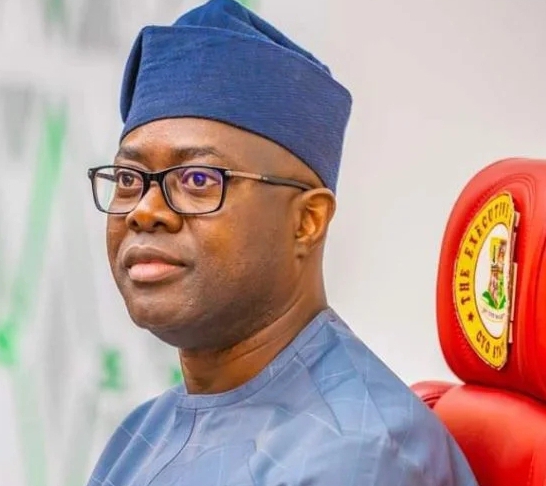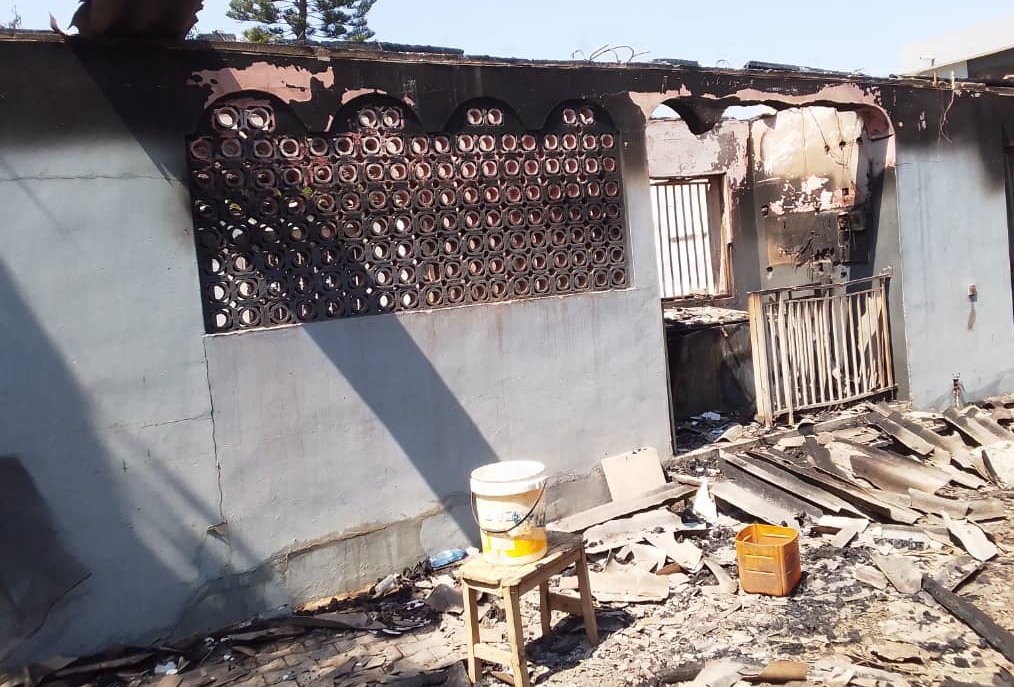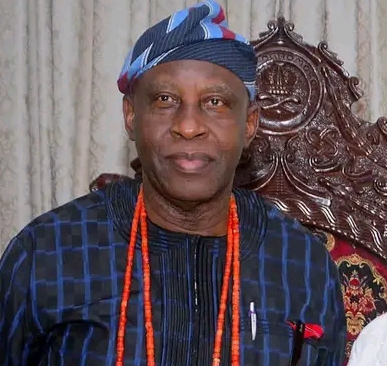It is not yet uhuru in Afghanistan for the Taliban as resistance is mounting against their taking control of the country, following the withdrawal of the US forces after close to 20 years.

The democratically elected president of the country Ashraf Ghani fled precipitately even as many Afghans, especially those who supported and worked for the US and her allies during their period of occupation have been leaving in droves. The US said in a report that 123, 000 persons were evacuated in two weeks.
As the conquerors prepare to settle down to governance with memories of its 1996-2001 rule flashing horribly in the people’s mind because of its horrid, harsh life for women, conflict appears in the horizon of the distressed country as a resistance group – National Resistance Front (NRF) – is coalescing in the Panjshir region.
The NRF is demanding a federal system of government asserting that a multi-ethnic nation like Afghanistan will only thrive under that structure.
Among the several ethnic groups in Afghanistan are the Pashtuns, Tajiks, Uzbeks, Hazara and many other ethnicities. In the absence of a census, it’s hard to pinpoint the numerical strength of any group. However, it’s generally believed that Pashtuns are the single largest group and they dominate the politics. Most Taliban are Pashtuns.
Ali Maisam Nazary, the spokesperson of the National Resistance Front has said they are prepared for a “long-term conflict”.
Ahmad Massoud, son of legendary Mujahideen commander Ahmad Shah Massoud (of Tajik ethnicity, who led successfully the resistance force against the Russian occupation army in the 1980s and the Taliban government before his assassination by al-Qaeda two days before the September 11, 2001 terror attack on the US); deposed vice-president and self-declared ‘care-taker’ President of Afghanistan Amrullah Saleh; and former defence minister General Bismillah Mohammadi are the top leaders of the National Resistance Front. They are all holed up in the “treacherous” Panjshir valley, thus Panjshir is developing into the hotbed of resistance.

Amrullah Saleh, the self-proclaimed acting president of Afghanistan, on Thursday said that the Taliban is “far from stability and sustainability” despite “dominance over the soil” and questioned its claim of support among people of the country.
“If the nation trusts you a bit, then why are people lining up on the borders of the country. Dominating structure in the past didn’t mean stability and your modern dominance over the soil doesn’t mean your stability. Stability and sustainability is a consistent system with components that your group is far from,” Saleh said, in his scathing comments on the Taliban insurgent forces.
Asserting that the resistance to the Taliban has spread extensively across Afghanistan, Saleh said, “Our resistance is to defend all Afghan citizens’ rights. This resistance is based in Panjshir. Today, this valley hosts all country and is hope for Afghan people who are escaping from oppression and more,” ANI reported.
The former Vice President of Afghanistan added that the collapse of the economy and absence of service machines will soon “destroy people”.
Addressing the Taliban, he said, “Your weapons and harsh method will not be effective against the uprising and anger of people. Only time is between, not if and unless.”
Saleh on Tuesday took a dig at the United States which withdrew from the war-torn nation, handing over the reins to the Taliban, saying “Afghanistan wasn’t packed and put in the bag of the last US solider”.
Taking to Twitter, Saleh — who has vowed to fight the hardliners — also took a dig at America, saying a super power had decided to be “mini power” and “that is OK”.
“Afgh wasn’t packed & put in the bag of the last US solider. The country is here. D rivers are flowing & d mountains are majestic. A super power decided to be mini power that is OK,” Saleh tweeted.
Not one to mince words, he also hit out at the Taliban, calling them an “unpopular proxy force.
In the same vein, Ahmad Massoud, son of Ahmad Shah Massoud, vowed to never surrender but said he was open to negotiations with the new rulers of Afghanistan, in an interview published by Paris Match on Wednesday.

Ahmad Massoud claimed “thousands” of men were joining his National Resistance Front in the Panjshir valley, which was never captured by invading Soviet forces in 1979 or the Taliban during their first period in power from 1996-2001.
The comments by Ahmad Wali Massoud to AFP in Paris come as his nephew Ahmad Massoud, the son of the commander slain in 2001, seeks to lead — alongside former vice-president Amrullah Saleh — an armed resistance based in the Panjshir valley north of Kabul.
“If the Taliban want to attack, people have the right to resist, to stand against the Taliban. The geography of the resistance has expanded so much across Afghanistan,” said Massoud, who has been based in Pakistan where he headed an NGO protecting the legacy of his brother.
He argued that “the beliefs of the people of Afghanistan have changed in the past 20 years. There has been a big jump.”
“The women of Afghanistan are the resistance, because their values are very different from the ones of the Taliban. The young generations of Afghanistan, which make up 70 percent of the population, they are part of the resistance.
“No matter what happens, resistance will continue. It is freedom fight for a universal belief, for universal rights. It will never die.”
Also, former defence minister of Ashraf Ghani’s government, General Bismillah Mohammadi, on Sunday said in a tweet that Panjshir will not surrender and will continue to resist.
Mohammadi on Sunday tweeted that Panjshir would not surrender to the Taliban and would continue to resist. Reports have also claimed that anti-Taliban forces in the valley, nestled in the Hindu Kush, are gaining strength and have even taken control over Pul-e-Hesar, Deh Salah and Banu. Reports also say that Massoud has assembled a fighting force of around 9,000 people in Panjshir to fight the Taliban.
Meanwhile, the resistance movement has marshalled its plans and preparations for the anticipated long conflict against the former rebels:
1. Prepared for long-term conflict, but wants negotiation with Taliban: Former Afghan government forces forming a resistance movement in a fortified valley are preparing for “long-term conflict”, but are also seeking to negotiate with the Taliban, their spokesman told AFP in an interview.
2. Thousands make way to Panjshir, recruits undergoing training: Since the Taliban took control of the country following a lightning charge into the capital Kabul, thousands of people have made their way to Panjshir to both join the fight and find a safe haven to continue their lives, Ali Maisam Nazary said. Pictures taken by AFP during training exercises show dozens of recruits performing fitness routines, and a handful of armoured humvees driving across the valley northeast of Kabul.
3. NRF’s main goal: Avoid bloodshed, press for new system of government: The National Resistance Front’s main goal is to avoid further bloodshed in Afghanistan and press for a new system of government. But Nazary said the group is also prepared for conflict, and if the Taliban do not negotiate they will face resistance across the country. “The conditions for a peace deal with the Taliban is decentralisation — a system that ensures social justice, equality, rights, and freedom for all,” Nazary told AFP, the NRF’s head of foreign relations, adding if the Taliban do not agree there will be “long-term conflict”.
4. Local militias make links with NRF, Taliban overstretched: Talks between local leaders from Afghanistan’s north and authorities in Pakistan were taking place until just days ago, Nazary added. While the Taliban control the vast majority of Afghanistan, Nazary optimistically highlighted reports that local militias in some districts have already begun resisting their hardline rule and have formed links with Massoud’s NRF. “Massoud did not give the order for these things to happen but they are all associated with us,” Nazary said. “The Taliban are overstretched. They cannot be everywhere at the same time. Their resources are limited. They do not have support amongst the majority.”
5. Massoud, Saleh’s views different: He said, however, that Masood had different views to Amrullah Saleh, latterly the country’s vice president who is also holed out in the valley and last week vowed to lead an uprising. “Mr Saleh is in Panjshir. He opted to stay in the country and not flee,” Nazary said, noting Saleh’s strong anti-Pakistan stance was at odds with Massoud who wanted good relations with Afghanistan’s Taliban-supporting neighbour. “Mr Saleh is anti-Taliban and anti-Pakistani. That does not mean he is a part of this movement. He is in Panjshir and he is respected.”
6. Aim to defend Panjshir and its people: The aim right now is to defend Panjshir and its people, Nazary said. “If there is any aggression because our fight is only for defence; if anyone attacks us we will defend ourselves.”
7. Intellectuals, women activists, politicians also in Panjshir: Alongside Massoud’s fighting force, Panjshir now hosts more than 1,000 displaced people from across Afghanistan who have poured into the valley looking for sanctuary, Nazary said. “We are seeing Panjshir become a safe zone for all those groups who feel threatened in other provinces.” He added the province has seen an influx of intellectuals, women’s and human rights activists, and politicians “who feel threatened by the Taliban”.
8. Massoud asks US for weapons: Massoud appealed for weapons from the United States in an op-ed published in the Washington Post on Thursday. Nazary told AFP that they also require humanitarian assistance to feed and take care of the newly arrived. Massoud is determined to stand by the people of the valley and take up his father’s mantle, Nazary added, stressing Afghanistan needs a federated system of government to close its endless cycle of war.
9. ‘A beacon of hope’: “War is just a byproduct of conflict in Afghanistan. What has caused the conflict is that Afghanistan is a country made up of ethnic minorities … (and) in a multi-ethnic country you cannot have one ethnic group dominate politics and others having a presence in the margins,” Nazary said, adding that Massoud’s resistance, and others across Afghanistan, are vital in making this change happen. “Panjshir has always been a beacon of hope.”


